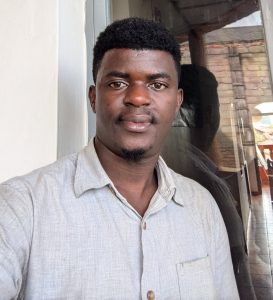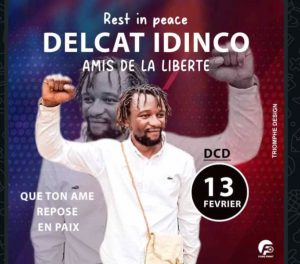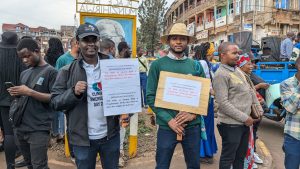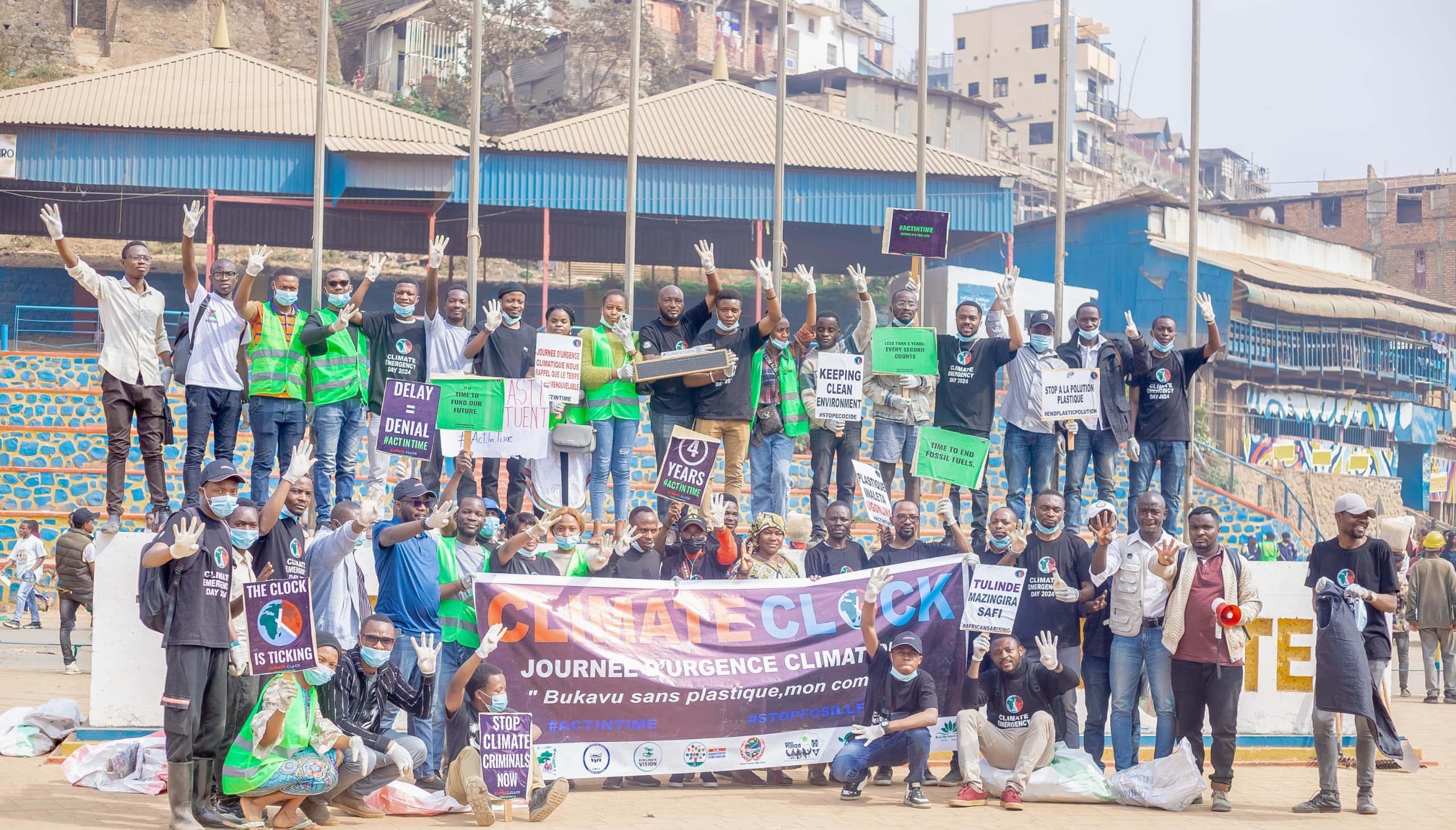By Patrick Omoake
The Democratic Republic of Congo (DRC) is currently facing a devastating humanitarian and security crisis, particularly in the eastern region, where conflict over mineral resources has intensified. Armed groups continue to wage violence, leading to thousands of deaths, displacement of civilians, and severe human rights violations.
In an exclusive interview, Crispin Ngakani, a dedicated climate and social activist from the DRC, sheds light on the harrowing reality of life in conflict-ridden cities like Goma and Bukavu. He speaks on the growing threats against activists, the worsening security situation, and the urgent need for international intervention.
Ngakani, who has been actively advocating for environmental sustainability and human rights, reveals how the crisis is not only driven by internal conflicts but also fuelled by external forces seeking to exploit the country’s vast mineral wealth, including cobalt, lithium, and coltan, which are critical resources for the global energy transition.
As the violence escalates, he calls on the international community to take decisive action, provide refuge for endangered activists, and impose strict sanctions on aggressors. His testimony provides a firsthand account of the struggles faced by Congolese citizens and activists who continue to risk their lives for justice, peace, and climate action.

With a strong passion for environmental sustainability and human rights, Crispin has been actively involved in various initiatives promoting peace, justice, and climate action. He shares his insights and experiences, providing a unique perspective on the current situation in the DRC.
Question 1: What is the major cause of the crisis in the DRC?
“The war in the eastern part of the DRC is a war of occupation and appropriation of our mining resources, including minerals involved in the energy transition such as cobalt, lithium, and coltan,” Ngakani explains.
Question 2: Can you describe the current situation in Goma and Bukavu? How has it affected your daily life?
“Currently, the situation is critical in both cities. In Goma, there have been massive killings of more than 3,000 people, along with enormous attacks and threats against activists in both Bukavu and Goma. In Bukavu, everything is currently blocked—no movements, no traffic within the city. The rebels control the city now and are attacking us as activists; we fear for our survival,” he shares.
Question 3: How long have you been involved in activism, and what motivated you to become an advocate for change?
“I have been a climate and social activist for five years. I was motivated by a series of natural disasters—landslides, floods, advancing lake waters—that led to enormous human, material, ecological, and biological losses. Witnessing these tragedies, I decided to advocate for food security and the assurance of a healthy life in a healthy environment,” Ngakani recounts.
Question 4: Have you noticed any changes in the rebels’ behaviour or tactics recently?
“Yes, significant changes. People are no longer the same; they have different ideas and ulterior motives following the unfortunate events that have affected us. There’s also a noticeable decline in attendance at ceremonies, weddings, and other celebrations,” he observes.
Question 5: Can you tell me about the Lucha activists who were killed? How did you know them, and what impact did their death have on you?
“For the moment, several Lucha activists have been killed, including Délicat Edingo, Byamungo Katema, Pierre, and four others. One was a revolutionary artist who expressed himself through songs about the current state of affairs and societal issues. Another was a fervent activist engaged in peaceful, non-violent actions to highlight systemic problems. Many others face threats, intimidation, and calls for violence from unknown individuals. As an activist, this situation deeply concerns me because it could happen to any of us; we are not entirely safe and fear for our lives and those of our families,” Ngakani laments.

Question 6: What is the impact of the current situation on the future of the DRC?
“There is no future in critical situations of war; everyone is devastated. There’s no hope or new projects we can undertake because we don’t know when this situation will end. Right now, the priority is to find a stable and safe place to take refuge, which requires asylum and support from international organizations and other benefactors who can help us relocate,” he emphasizes.
Question 7: Do you believe that some international forces or external influences are contributing to the escalation of this crisis?
“Indeed, several appeals have been made to the international community and the European Union, but they have fallen on deaf ears, without concrete actions or real sanctions against the aggressors and the countries behind them. This leads us to believe that other nations are involved behind this crisis,” Ngakani asserts.
Question 8: What kind of support do you think would make a significant difference for you and other activists right now?
“Given the current critical state, we want to find a safe and secure place where we can take refuge (asylum or amnesty) while waiting for the situation to calm down because our lives are in danger,” he pleads.
Question 9: Have you received any assistance or offers of help from local or international organizations?
“None so far. We have issued several alerts, but there has been no follow-up until now,” Ngakani reveals.

Question 10: How do you believe the international community can better support climate activists in the DRC?
“For the moment, international asylum and human rights organizations can significantly contribute by granting asylum and amnesty to activists, relocating them to stable and secure regions or countries while waiting for an improvement in the situation,” he suggests.
Question 11: What messages do you want to convey to the international community about the situation in the DRC?
“The international community must act immediately by taking all binding measures, such as severe and real sanctions on all levels—military, economic, support—against Rwanda, which is currently considered our aggressor,” Ngakani urges.
Question 12: How can people outside the DRC help raise awareness about the plight of activists and civilians?
“Through advocacy and lobbying, awareness campaigns, support marches, and financial support to help millions of people in the DRC find safe, stable, and secure places,” he recommends.
The crisis in the Democratic Republic of Congo remains a dire humanitarian emergency, with activists like Crispin Ngakani risking their lives to expose the truth and advocate for justice. As violence continues to escalate, the call for urgent international intervention grows louder.
Without decisive action from global leaders, humanitarian organizations, and human rights defenders, countless lives will remain at risk, and the struggle for peace and stability in the region will persist.
Ngakani’s plea for protection, asylum, and real sanctions against aggressors highlights the immediate need for global solidarity. The world cannot afford to turn a blind eye—now is the time to act before more lives are lost, and hope for a peaceful DRC fades further into uncertainty.


